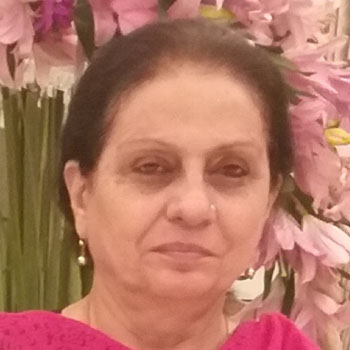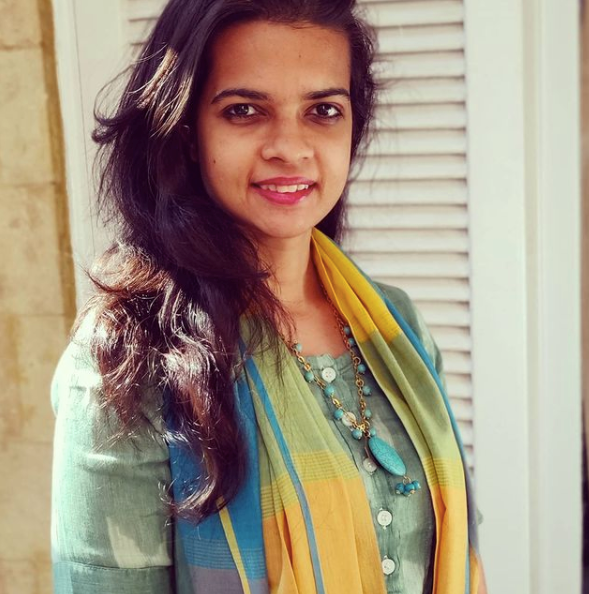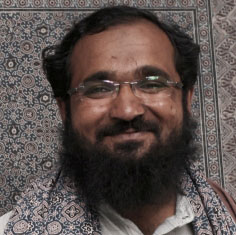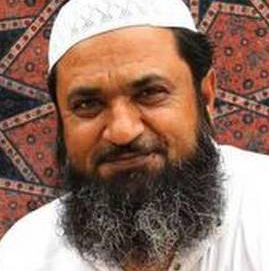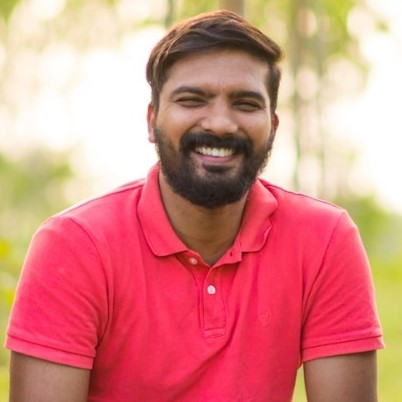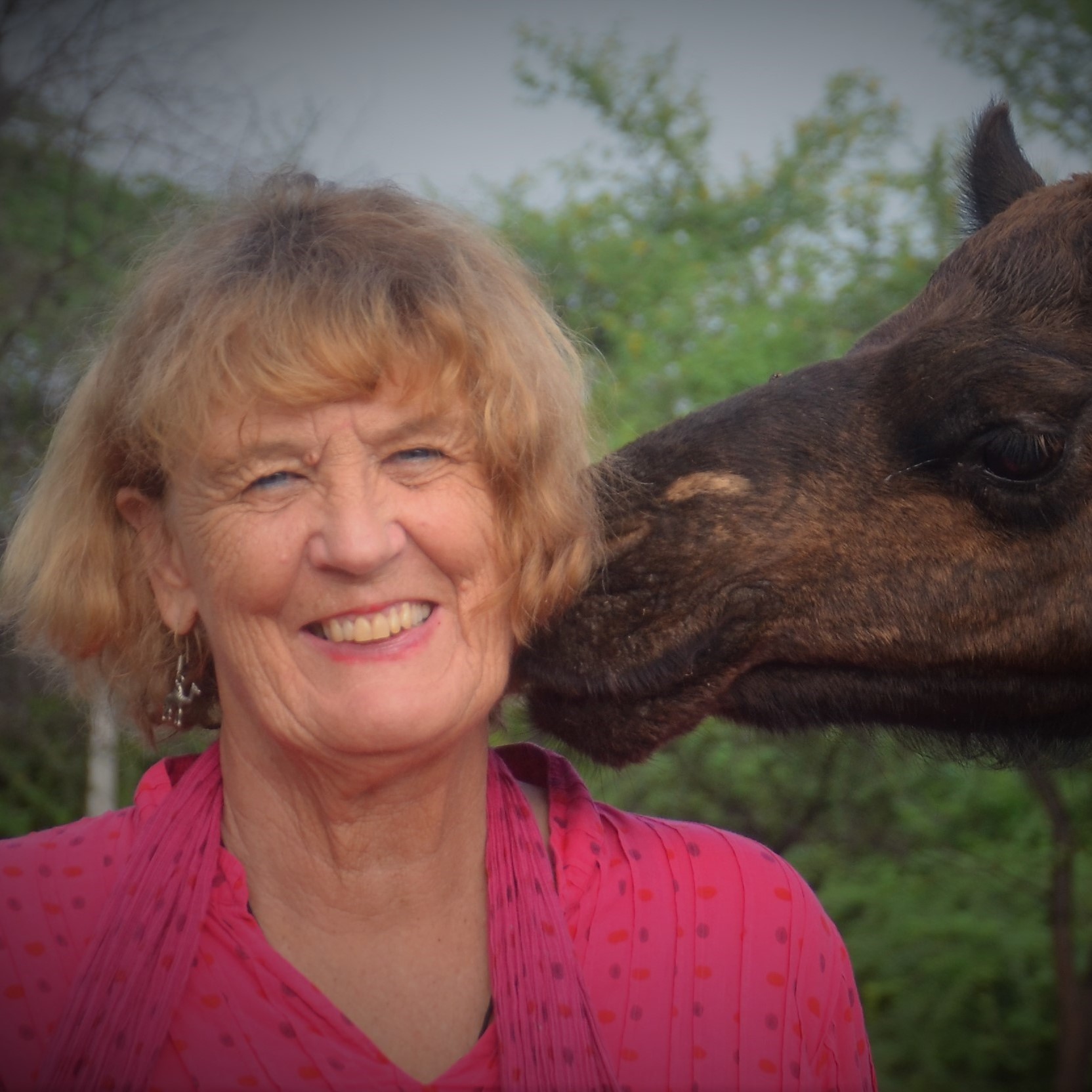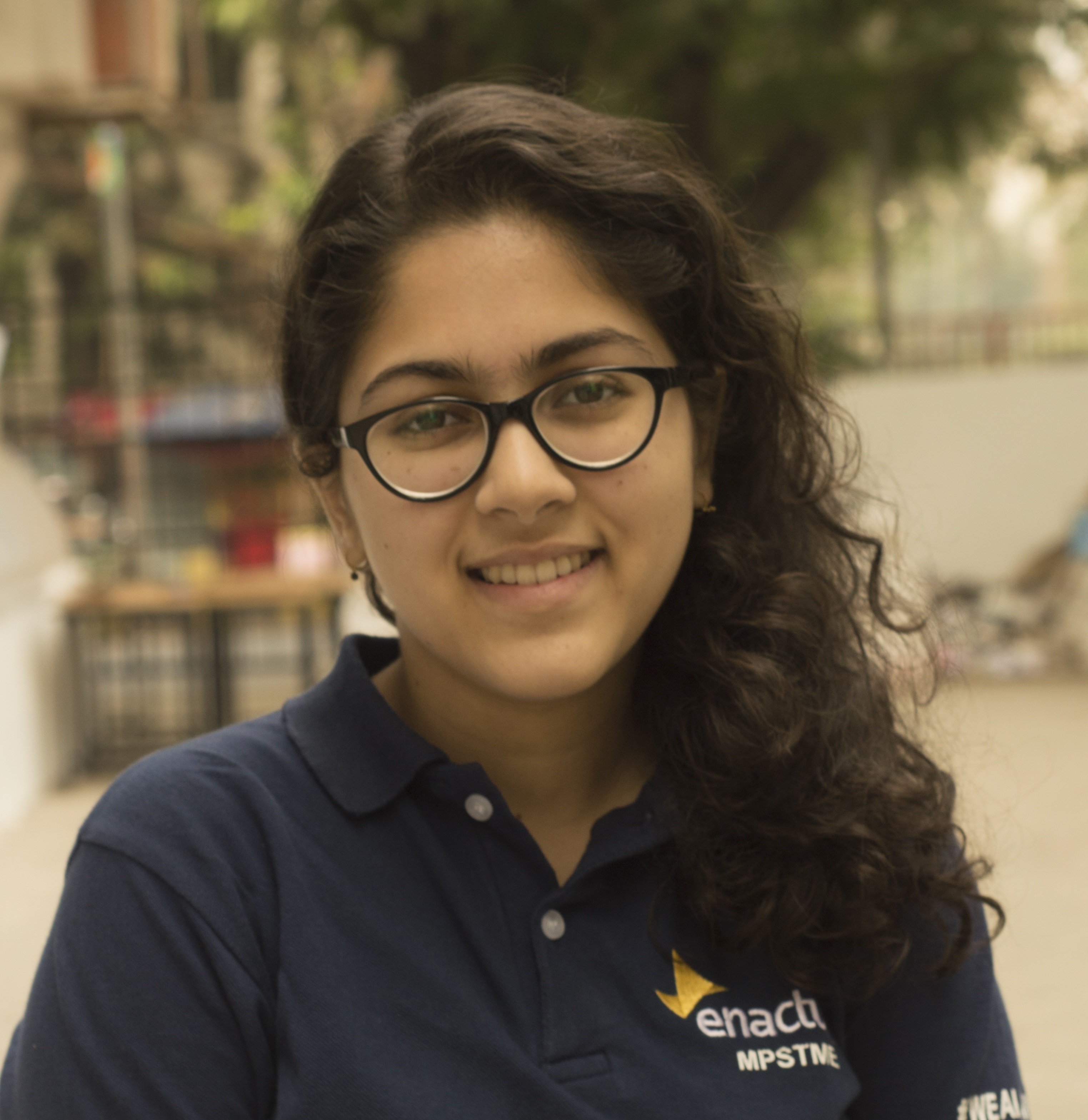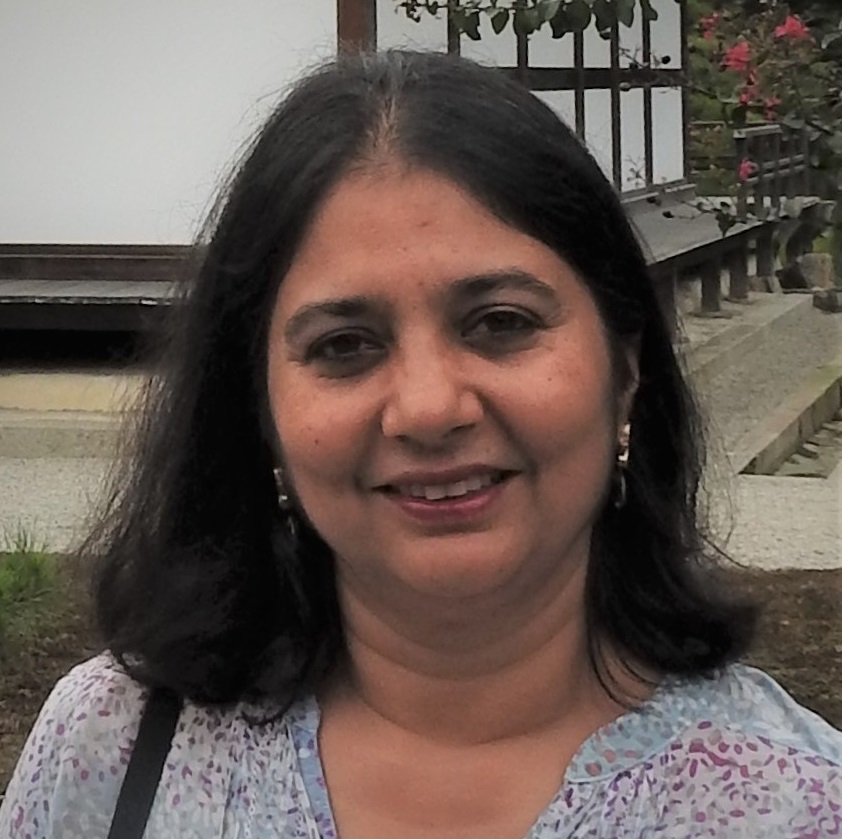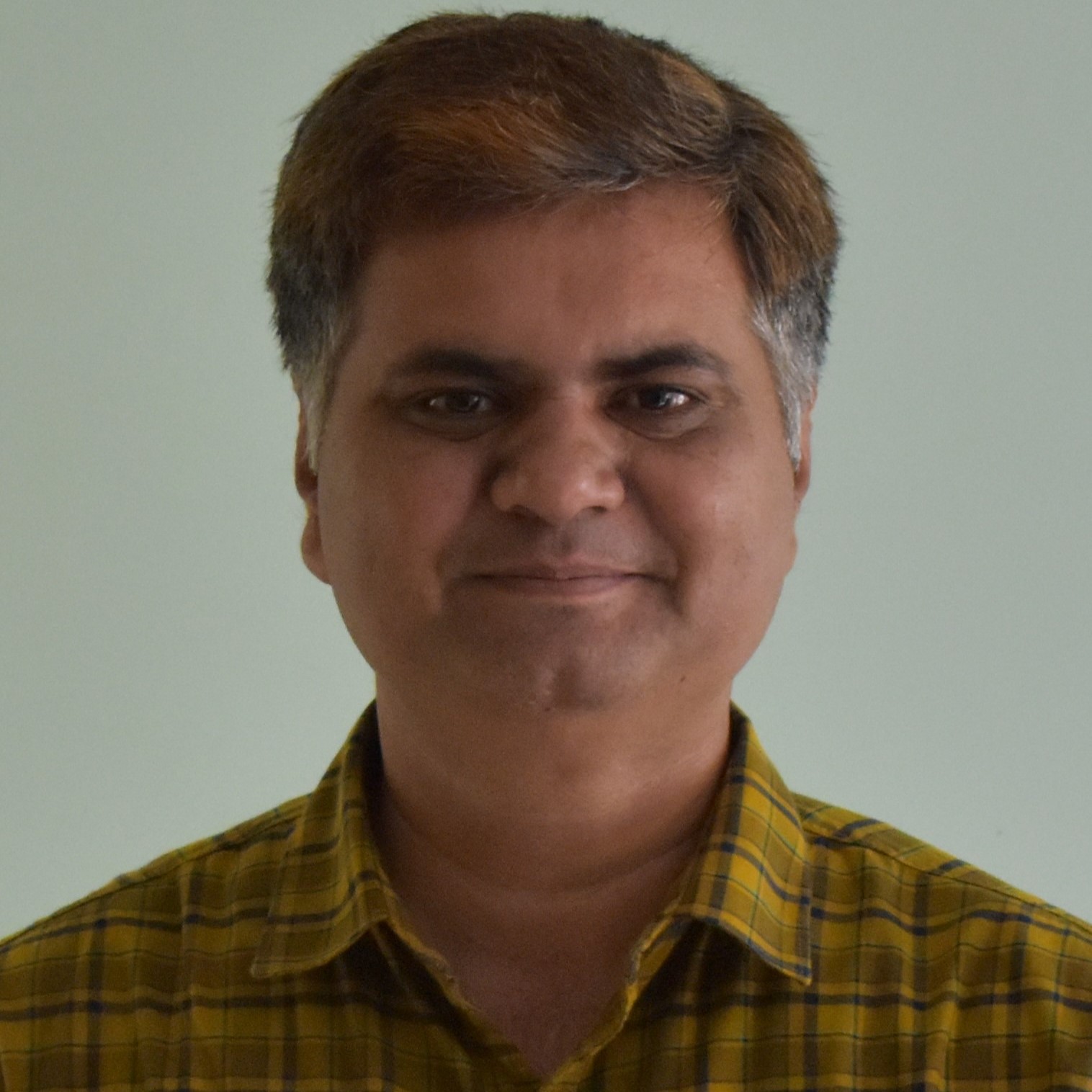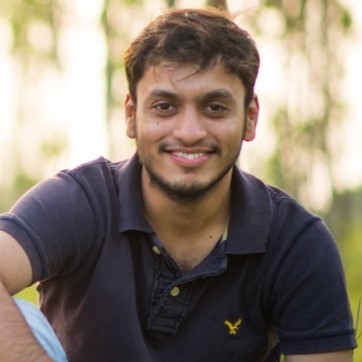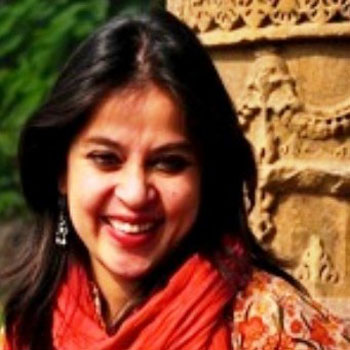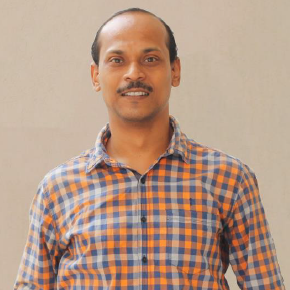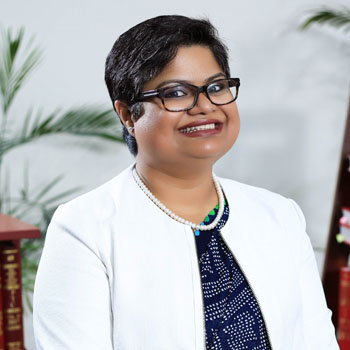JOURNAL ARCHIVE
Noor Khan is an educationist and retired as the Principal of Karamat Husain College, Lucknow. She is a member of the core team of Sanatkada and has worked closely with the organization since it was set up by Madhavi Kuckreja as a weaves and crafts outlet in Lucknow in 2006. Sanatkada's annual theme based festival under the banner Mahindra Sanatkada Lucknow Festival (since 2010) has become an important event on Lucknow's cultural calendar. The theme changes every year and focuses on Lucknow's rich heritage and cultural diversity. Some interesting themes in the past have been the celebration of Lucknow's crafts, food, pehnawa, communities, its feminists, qasbas, its French connection . Sanatkada has a wide outreach but its basic business remains the same - that, it is a weaves and crafts outlet and its commitment to craft practitioners has deepened with time. The theme of the 10th MSLF was a celebration of the beautiful craft practices of Lucknow - Husn-e-karigari-e-Awadh. So Gyan and Mohammad Ali are not random blockmakers and printers, they are master craftsmen who participate regularly in the MSLF and with whom Sanatkada shares a special relationship. They best represent the husn for which the karigari of Lucknow is widely appreciated.
Arushi has been involved in building sustainable crafts’-based enterprises for the last 12 years. She is an Economics graduate from Mumbai’s St Xavier’s College and a post-graduate from NIFT. She began her career with WomenWeave, an NGO working for the advancement of women handloom weavers in Madhya Pradesh. From 2012-mid 2015, she headed the Enterprise Support and Craftmark Programs at the All India Artisan and Craftworkers Welfare Association (AIACA). She and her team conducted many successful design and technical intervention with crafts from across the length and breadth of India. Significant amongst these was the crewel embroidery project with INTACH J&K, design development of the craft of “bandhani” funded by Ford Foundation and the successful revival of the Mubarkapuri weave of Uttar Pradesh. In the commercial space, Arushi has been part of the founding product teams for craftsvilla.com and Aditya Birla’s curocarte.in. She is also a self-taught natural dyer and her developments in the field of marigold and rose flower dyes for Adiv Ltd are today carried by international brands like Eileen Fisher and Dosa. She has been visiting faculty at STF Zurich and Ashoka University Delhi. Over the years, she has seen the handloom and craft sector move from a sunset industry into a dynamic, thriving sector. However, while crafts like Maheshwari, Chanderi and Banarsi have prospered, there are many unknown crafts in little corners of India that are breathing their last. In 2017, she set up LoomKatha to work towards the development of these crafts. Today, LoomKatha is working with close to a 100 weavers in 3 states of India. Its flagship project is the Himroo Revival Project. In 2 short years, LoomKatha has been able to resuscitate this nearly extinct weave and bring it back to market. Arushi is an Acumen India fellow and was awarded the Acumen Emerging Young Talent Award in 2017. She also won the Emerging Women’s Social Enterprise Award given by Fondation Chanel at WomenDeliver 2019, Vancouver. LoomKatha is an incubatee of the AIC Banasthali under Niti Aayog, GoI and a member of Aspen Insitute’s Artisan Alliance.
Dinesh Khanna worked variously as a calculator salesman, Garments quality checker and a busboy in an upper Eastside Bar in New York in his early years. This rather confused career path was due to his early teenage belief that if he followed in his photographer father's footsteps he would be yet another victim of the Indian caste system. This rebellion further led him to a 12 year long career as in advertising where he finally achieved 'burn-out' at the ripe old age of 33 and left him with a burning desire to become a professional photographer. In 1990 he finally succumbed to what can probably be blamed on genetic- coding - the desire to make images - both as means of making a living and as a form of creative expression. The last 15 years have seen him involved in creating images for Advertising, Editorial and Corporate clients and a large body of personal work, which has been exhibited in Delhi, Mumbai, Kolkata, Banglore, London, Edinburgh, San Francisco and New York - And 2 pictorial books - 'Bazar' and 'Living Faith' were a result of an over a decade of traveling through the traditional markets and spiritual centres of India.
Adam Khatri is a member of the tenth generation of his family to live and work as a block printer and dyer in Dhamadka village, Kachchh district, Gujarat. Like his father, Abduljabbar M. Khatri, and grandfather, Khatri Mohammad Siddik, Adam is well-known for making a textile known as ajrakh. Resist- and mordant-printed, ajrakh is printed on both sides of the cloth with complex geometric and floral patterns. It is part of the cultural heritage of the desert regions of Kachchh and Thar in India, and Sindh in Pakistan, where it has been integral to the visual identity of cattle herders, expressing their faith and occupation. In the past twenty-thirty years, ajrakh has been translated into a fashion fabric popular in the urban markets of India and the West, and Adam’s family has taken a central role in its transformation, led in the early days by his late grandfather, Mohammad Siddik. Adam studied for a diploma at the National Institute of Fashion Design, Bhuj, gaining awards for Best Fabric Use, Most Wearable Garment, and Best Designer (2005). Since completing his education, he has added new designs to the established repertoire produced in the family workshops while remaining faithful to the technique passed down to him by his forebears of block printing with natural dyes. In recognition of his prowess as a block printer specialising in the use of natural dyes he received a National Craft Award from the Government of India in 2011. In recognition of this accolade his alma mater conferred him with a Best Achievement Award in 2012. His work was included in the Madame Hall Collection (an Australian brand) at Lakmé Fashion Week, Mumbai in January 2017.
A member of the ninth generation of his family to live and work in Dhamadka village in Kachchh district, Gujarat, as a block printer and dyer, Abduljabbar Khatri is renowned for making a textile known as ajrakh. A resist- and mordant-printed textile, ajrakh is printed on both sides of the cloth with complex geometric and floral patterns. It is part of the cultural heritage of Kachchh, Thar in Rajasthan and Sindh in Pakistan where it has been integral to the visual identity of cattle herders, expressing their faith and occupation. In the past twenty-thirty years ajrakh has been translated into fashion fabric popular on the urban markets of India and overseas, and Abduljabbar has taken a central role in its transformation. In recognition of his prowess as a block printer specialising in the use of natural dyes, Abduljabbar was conferred with a National Craft Award by the Government of India in 2003. He has also achieved international recognition - receiving a UNESCO Seal of Excellence in 2008, an award for Innovation and Creativity in Craft from the Government of Oman in 2011, and most recently, an Award for Excellence in Handicrafts from the World Crafts Council in 2014. His textiles are held in museum collections around the world, including the V&A, London, Ashmolean Museum, Oxford, and the Textile Museum, Washington D.C. He has also demonstrated his craft at exhibitions and cultural events worldwide, notably at the V&A (2007), in Oman (2012) and at Nottingham Trent University (2016). Apart from these accolades, the popularity of his textiles has been consolidated by long-term collaborations with companies in India and overseas, including Maiwa Handprints in Vancouver, Canada, and Fabindia, a transnational fashion and lifestyle company. In tandem with running a large block printing enterprise, Abduljabbar is a committed guardian of India’s craft heritage, and has been active in the research of his own craft working on the Imprints of Culture project (Leverhulme Trust 2012-14) and the ongoing By Design: Sustaining Culture in Local Environments. Learning from the Indian Handicrafts Sector project (British Academy 2014-17). He is also collaborating with Eiluned Edwards on a book about ajrakh.
Santosh Kocherlakota is one of the co-founders of Earthen Tunes. He has completed his master's in design from National institute of design Ahmedabad and his engineering in electronics and Instrumentation from BITS-Pilani. Prior to starting Earthen Tunes ,he has worked as assistant manager in Bharat petroleum and has later worked on multiple social innovation projects such as electric wheelchair for India which has also been supported by IIT Bombay and is patented (WO 2019/030778 A1).. Earthen tunes is an IIT Madras funded startup and is recipient of various awards such as Lexus design award, iprenuer, etc.
Ilse Köhler-Rollefson is a native of Germany and has spent most of the last 30 years in Rajasthan where she has researched and supported the Raika camel culture. A veterinarian by training she founded the League for Pastoral Peoples and Endogenous Livestock Development (LPP), an international advocacy organization for pastoralists. Together with her partner she is co-founder of India’s first dedicated camel dairy in Rajasthan and the social enterprise Camel Charisma.
She has consulted for diverse clients such as World Bank, GTZ/GIZ, Misereor, FAO, ILRI, UNDP and many others. Her work for camel conservation has been awarded by the presidents of both India and Germany and she is author of a popular book entitled Camel Karma. Twenty Years among India’s camel nomads and of Hoofprints on the Land. How traditional herding and grazing practices can restore the soil and put animal agriculture back in balance with the earth.
Camel Charisma seeks to save camels and create livelihoods by developing innovative and eco-friendly products from camel raw materials. www.camelcharisma.com
Shinjini Kotia is a social impact professional driven by a commitment to furthering socio-economic development through sustainable solutions in both rural and urban settings. Over the course of her career and education, she has delved into various dimensions of the social sector, collaborating with diverse small-scale NGOs nationwide. Between 2019 and 2021, she worked at Khamir, an NGO working to support handicraft artisans of rural Kachchh. Here, she worked closely with artisans and education stakeholders to develop a craft-based curriculum and programs. Through her experiences, she gained invaluable insights into indigenous knowledge systems built around traditional craft practices and their adaptation to modern needs while maintaining a strong focus on sustainability. Today, as part of Dasra's Rebuild India Fund, she is supporting the curation and management of a portfolio of NGOs as potential grantees, building the capacity of grassroots leaders and teams, and sharing thought leadership pieces based on the insights generated.
Geetanjali Krishna is a contributing editor with Business Standard and is the co-founder of The India Story Agency, which specializes in telling human interest, environmental, and social affairs stories and case studies from South Asia to the world. Her recent by-lines can be found in Times, BBC, British Medical Journal, Footprint and Business Standard.
Ghatit Laheru, Director, KHAMIR Ghatit holds degrees in journalism and Management of nonprofits. He is associated with Khamir, a craft organization for more than 14 years in various capacities and now heading it in the position of Director. He enjoys working on issues of culture and craft development. He believes in the “Gandhian” values and has been interested in Khadi since his early years. He was one of the lead members of the team which worked on “Kala cotton”, an indigenous cotton grown in and around Little Rann of Kachchh (LRK). He is part of the team which promotes hand spinning of cotton and wool in Kachchh. He wishes to secure a brighter future for the traditional artisans, weavers and spinners of Kachchh and India.
Nakul Lathkar has completed his masters from National Institute of Design Ahmedabad and his engineering from Mumbai. Nakul Lathkar is an expert visualizer and designer and prior to Co-founding Earthen Tunes has worked on multiple automotive/Transportation Design Projects in both Europe(CEIIA) and India (Railway Design Centre). Nakul Lathkar was also part of the design team at OLA Mobility that has designed the upcoming EV lineup
Lilaowala, Ashdeen Z. is a Textile Designer from the National Institute of Design, Ahmedabad, India. He is currently working as a Designer specializing in hand embroidery and enjoys working on the revival of lost traditions with craftspeople, while also documenting crafts and traditions of diverse Indian communities. Many of his articles on Indian crafts have been published in International publications. His other interests include photography and fashion.
Arvind Lodaya product designer, thinker, communicator, educationist, has worked in areas that include corporate product design, social communication, brand building and environment education. He is currently teaching at Srishti School Art and Design, Bangalore.
Minhazz Majumdar is a curator, writer and arts administrator who has over two decades of work experience in promoting folk and tribal cultures. She has built art and ethnographic collections from India for several major international museums and has facilitated the production of ground breaking exhibitions across the globe. She has also initiated and managed several interesting cross cultural exchanges.
Dr. Sukanta Majumdar is Assistant Professor, M. Des Department of Design, School of Planning and Architecture, Bhopal, with decades of experience in Product-Service Systems Design and sustainability Issue.
Shwetasree Majumder is an alumnus of the National Law School, Bangalore. She founded the boutique IP, technology and sports law firm Fidus Law Chambers in 2008, where she is the Managing Partner. The India Business Law Journal has placed Shwetasree in the A list of top 100 lawyers in India, the World Intellectual Property Review names her as one of 80 most influential women in IP in the world and The World Trademark Review identifies her as a Global Leader among Trademark lawyers worldwide. Shwetasree was elected to the Board of Directors of the International Trademark Association (INTA), the world’s largest association of trademark owners, for the period 2013-2015, the first woman from India to be appointed in the 135 year-old history of the organisation. Shwetasree has been a member of a panel which worked on the Verma Committee Report leading up to amendments in Indian criminal laws to address crimes against women.
Pradeep Malhotra is an Executive Trustee with ‘Dharini’ a Kumaon based NGO interested in promoting hill arts and developing creative initiative that are small in scale yet provide practical alternatives in the face of current environmental and economic challenges. Also member of the environmental NGO Kalpavriksh and Editor with SOS Children’s Village of India.
Santi Mallorqui, has been involved with different businesses related to food in the family business as well as organic product supermarkets. It was after visiting a German fair of organic products that he met the founder of ORGANIC COTTON COLORS with whom he established a good relationship until he considered buying this business now some 13 years ago. Since then it has been dedicated to improving as well as establishing new and strong alliances with all the suppliers involved in the supply chain as well as creating the OCC Guarantee Brazil project through family farmers in different states.
